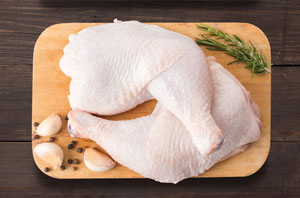 For gastric sleeve, gastric bypass, and gastric band who are entering the semi-solid food phase of their post bariatric surgery diet, finding foods to eat that you both enjoy and tolerate can be tricky. Some foods taste good, but don’t sit well in your new stomach. Some foods are tolerated by your stomach, but your mouth (or nose) is a different story.
For gastric sleeve, gastric bypass, and gastric band who are entering the semi-solid food phase of their post bariatric surgery diet, finding foods to eat that you both enjoy and tolerate can be tricky. Some foods taste good, but don’t sit well in your new stomach. Some foods are tolerated by your stomach, but your mouth (or nose) is a different story.
When trying a new food at this stage two things are important: keep it moist and try a spoonful to see if you tolerate it. Keeping your foods moist at this stage is important to prevent gagging. Dry foods are one thing bariatric patients often can not tolerate. Also, you do not know how your body is going to accept foods. If it’s something you regularly ate prior to bariatric surgery, that does not mean your new stomach is going to accept it. It’s generally best to try foods one at a time after surgery, taking a bite to assess for tolerance before eating a full serving. And as a reminder, chew everything thoroughly before swallowing.
Chicken is one food that many bariatric patients like to start with. Dr. Shillingford and his staff recommend not starting with chicken breast (due to dryness). Dark meat chicken can be a better protein option to try as it’s moister. If you know you tolerate dark meat chicken, you can try to make it into a meal by adding mashed avocado and even a little lime juice to make a healthier version of chicken salad without the mayonaise. As you get further on in your bariatric diet, chicken salad with avocado can still be a great choice. When you are able to tolerate solid foods in stages 6 and 7, you can add in some red onion, celery, and diced apple for extra flavor and variety.
Do not rush into trying new foods. Making sure your body will accept new foods is key to a smooth recovery. It’s hard to feel good and get enough water and protein when you are nauseous, vomiting, or having diarrhea. Try new foods slowly, making sure they are moist and are correct for your current stage of your post bariatric surgery diet. Some weight loss surgery patients need to stay in the pureed stage longer than others. That’s ok. Listen to your body and don’t proceed in the stages until you are tolerating your current stage and are ready to move up.
Dr. Shillingford’s post bariatric surgery diet can be found here. Each bariatric surgery patient is different and you should always go with the advice of your bariatric surgeon, nurse, and dietitian if you’ve told anything different than Dr. Shillingford diet guidelines. If you have questions about what you should be eating after your gastric sleeve, gastric bypass, or gastric band surgery, please do not hesitate to call Dr. Shillingford’s office at (561) 483-8840, especially if you can not find the answer in his emailed or posted diet guidelines. Dr. Shillingford, MD, PA is a board certified surgeon specializing in advanced laparoscopic and weight loss surgery, including sleeve gastrectomy, gastric bypass, and lap band surgeries. His patients come from all over South Florida, including Boca Raton, Miami, Fort Lauderdale, and West Palm Beach.

 Am I A Candidate
Am I A Candidate  BMI Calculator
BMI Calculator  Why Choose Us
Why Choose Us